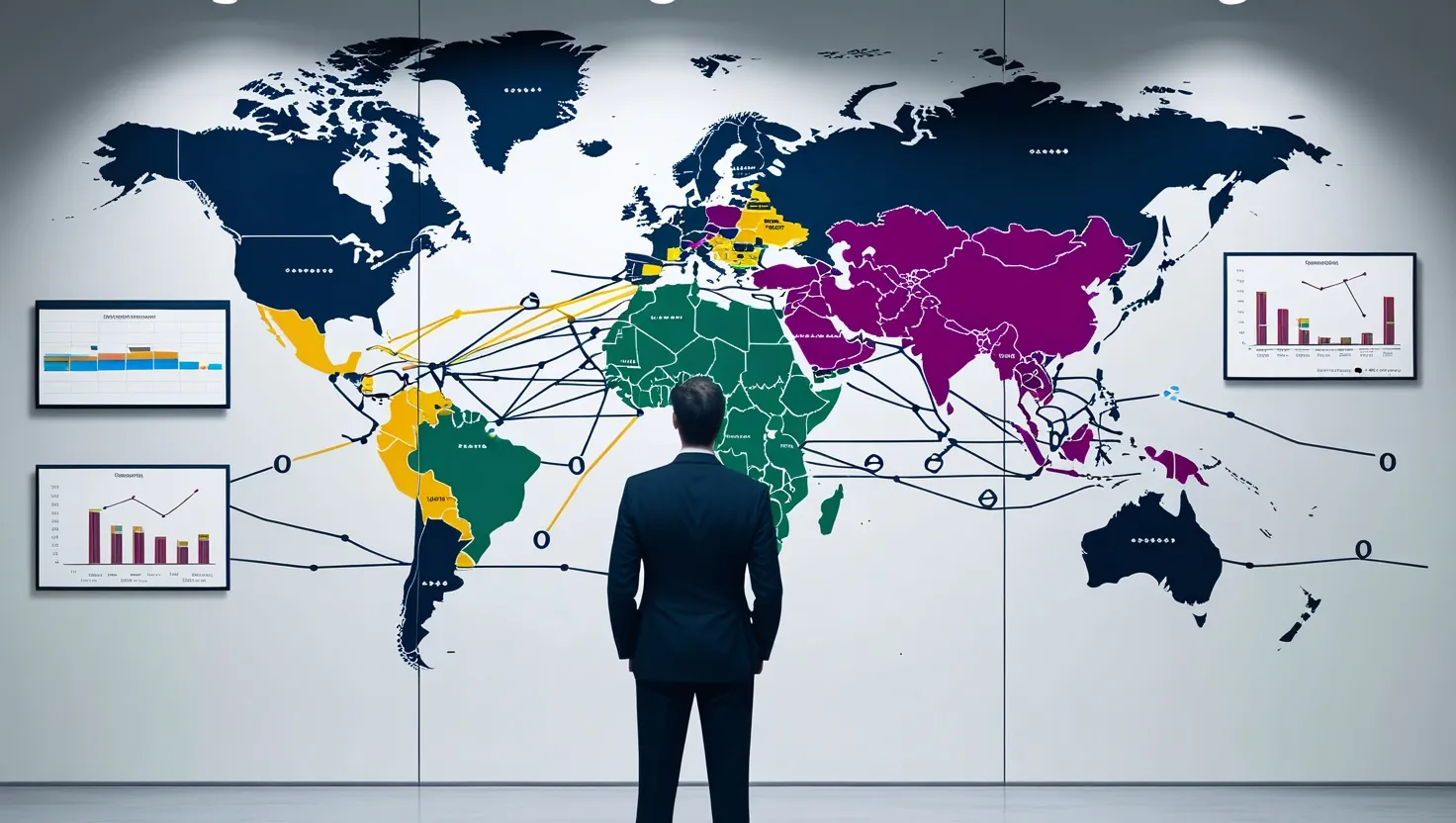In the modern era of remote work, the traditional image of a CFO confined to a corner office is rapidly evolving. Imagine a finance chief who has embraced the digital nomad lifestyle, managing global teams from the vibrant streets of Lisbon one day and the serene beaches of Bali the next. This is not just a tale of adventure; it's a story of leadership, productivity, and the innovative use of technology to keep global teams thriving.
The New Frontier of Leadership
As a digital nomad CFO, the first challenge is building and maintaining a strong company culture across different time zones. This isn't about imposing a uniform culture but rather about creating a cohesive and inclusive environment where everyone feels valued and connected. For instance, regular virtual meetings and one-on-one check-ins are crucial. These interactions help in setting clear expectations and ensuring that remote team members are aware of their roles and responsibilities.
Investing in a robust remote work strategy is essential. This includes leveraging videoconferencing tools to make virtual meetings feel as real as possible. Live video feeds allow team members to see each other and interact in real-time, which is the next best thing to face-to-face meetings. At Page Executive, for example, the team sees each other every Monday but works from different locations the rest of the week, highlighting the importance of staying connected through technology.
Mastering Asynchronous Communication
One of the key skills a digital nomad CFO must develop is the art of asynchronous communication. This involves using tools like email, project management software, and messaging apps to ensure that communication flows smoothly even when team members are not online at the same time. It's about understanding that not everyone works on the same schedule and being flexible enough to accommodate different time zones.
For example, if a team member in the Midwest needs to discuss a financial report with a colleague in Europe, they can use collaborative tools to leave comments and questions on the document. This way, the European colleague can address the queries as soon as they come online, ensuring that work doesn't get held up due to time differences.
Navigating Regulatory Complexities
Managing a global team also means dealing with the regulatory complexities of different countries. This can be a daunting task, but with the right tools and knowledge, it becomes manageable. For instance, understanding local tax laws, labor regulations, and compliance requirements is crucial. Digital nomad CFOs often have to juggle these complexities while ensuring that the company remains compliant in all jurisdictions.
To simplify this process, many companies use centralized platforms to manage mobile services and data plans. eSIM technology, for example, allows for seamless connectivity and secure remote activation and management of mobile services, which is particularly beneficial for global teams.
Leveraging Digital Tools
Digital tools are the backbone of any successful remote team. From project management software like Trello or Asana to communication tools like Slack or Microsoft Teams, these platforms help in keeping everyone on the same page. They enable real-time collaboration, task assignment, and performance monitoring, which are essential for maintaining productivity.
For digital nomad CFOs, tools like eSIMs are game-changers. These virtual SIM cards allow team members to stay connected in multiple countries without the hassle of swapping physical SIM cards or dealing with expensive roaming charges. This not only enhances productivity but also reduces costs and simplifies international travel.
Fostering a High-Performing Team Culture
Creating a high-performing team culture is about more than just using the right tools; it's about empowering team members to take ownership of their work. This involves giving them the flexibility to choose when and where they work, as long as they meet their performance targets. Digital nomads, in particular, value this flexibility and often negotiate their work schedules to align with their personal preferences.
A survey by Microsoft found that employees are more excited about having control over how, when, and where their work gets done. They want to be involved in the decision-making process regarding technological tools and solutions. By empowering them in this way, leaders can foster a culture of innovation and productivity.
Balancing Work and Wanderlust
One of the most intriguing aspects of being a digital nomad CFO is the ability to balance work with travel. This lifestyle is not just about seeing new places; it's also about finding inspiration and creativity in different environments. For instance, working from a café in Paris or a coworking space in Tokyo can be incredibly stimulating.
However, it's important to maintain a clear distinction between work and personal life. Setting a routine that includes both work hours and personal time is crucial. This might involve dedicating specific hours to work and then exploring the local area during personal time. It's about finding that perfect balance that keeps you productive and fulfilled.
Productivity Insights
Managing global teams requires a deep understanding of what drives productivity. One key insight is that remote workers are often more productive than their office-based counterparts. A study by Stanford University found that people who work outside of the office are 50% less likely to leave the company, indicating higher job satisfaction and productivity.
Another insight is the importance of clear communication and expectations. Setting standard key performance indicators (KPIs) helps in monitoring performance and ensuring that everyone is aligned with the company's goals. Regular feedback sessions and one-on-one chats also play a critical role in keeping remote team members engaged and motivated.
The Future of Work
The digital nomad CFO is at the forefront of a new era in leadership and productivity. This lifestyle is not just a trend; it's a reflection of the changing nature of work. With the rise of remote and hybrid work models, companies are increasingly looking for leaders who can manage teams across different time zones and cultures.
For those considering this lifestyle, it's important to remember that it's not just about the freedom to travel; it's also about the responsibility to lead and manage effectively. It requires a unique blend of technological savvy, cultural awareness, and leadership skills.
In conclusion, the digital nomad CFO is a symbol of the future of work – a future that is flexible, global, and highly connected. By mastering the art of remote leadership, leveraging digital tools, and fostering a high-performing team culture, these CFOs are redefining what it means to be productive and successful in the modern workplace. Whether you're sipping espresso in Lisbon or hiking in Bali, the world is your office, and the possibilities are endless.






